Filter by
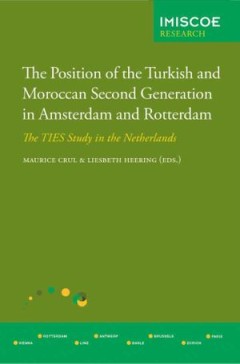
The Position of the Turkish and Moroccan Second Generation in Amsterdam and R…
The Dutch second generation of Turkish and Moroccan origin is coming of age and making a transition from education to the labour market. This first publication of the TIES Project (Towards the Integration of the European Second Generation) studies the social situation and views of this ethnic group, drawing on the research carried out in Amsterdam and Rotterdam in 2006-07 among the Dutch-born c…
- Edition
- -
- ISBN/ISSN
- 9789089640611
- Collation
- -
- Series Title
- -
- Call Number
- 320 HEE p
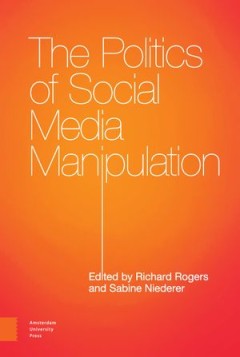
The Politics of Social Media Manipulation
Disinformation and so-called fake news are contemporary phenomena with rich histories. Disinformation, or the willful introduction of false information for the purposes of causing harm, recalls infamous foreign interference operations in national media systems. Outcries over fake news, or dubious stories with the trappings of news, have coincided with the introduction of new media technologies …
- Edition
- -
- ISBN/ISSN
- 9789048551675
- Collation
- -
- Series Title
- -
- Call Number
- 302.23 POL p

Policy, People, and the New Professional
Engaging with the acclaimed American sociologist Eliot Freidson's argument about professionalism's 'third logic' (a viable alternative to bureaucracy and consumerism), Dutch, British, French and German contributors to this volume bring together three political and academic debates rarely tackled jointly: professionalism, change, and policy, in the context of the increasing marketization and bur…
- Edition
- -
- ISBN/ISSN
- 9789053568859
- Collation
- -
- Series Title
- -
- Call Number
- 301 KNI p
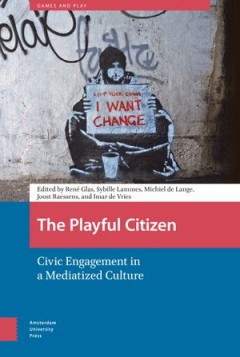
The Playful Citizen: Civic Engagement in a Mediatized Culture
In the last decade, digital media technologies and developments have given rise to exciting new forms of ludic, or playful, engagements of citizens in cultural and societal issues. From the Occupy movement to playful city-making to the gameful designs of the Obama 2008 and Trump 2016 presidential campaigns, and the rise of citizen science and ecological games, this book shows how play is a key …
- Edition
- -
- ISBN/ISSN
- 9789048535200
- Collation
- -
- Series Title
- -
- Call Number
- 302.23 PLA p

Players and Arenas: The Interactive Dynamics of Protest
Players and Arenas brings together a diverse group of experts to examine the interactions between political protestors and the many strategic players they encounter, such as cultural institutions, religious organizations, and the mass media—as well as potential allies, competitors, recruits, and funders. Discussing protestors and players as they interact within the “arenas” of specific so…
- Edition
- -
- ISBN/ISSN
- 9789048524235
- Collation
- -
- Series Title
- -
- Call Number
- 300 JAS p
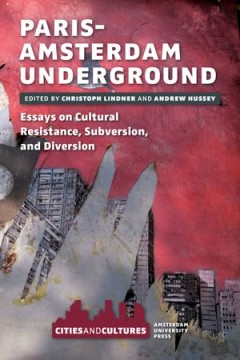
Paris-Amsterdam Underground
The postwar histories of Paris and Amsterdam have been significantly defined by the notion of the “underground” as both a material and metaphorical space. Examining the underground traffic between the two cities, this book interrogates the countercultural histories of Paris and Amsterdam in the mid to late-twentieth century. Shuttling between Paris and Amsterdam, as well as between postwar …
- Edition
- -
- ISBN/ISSN
- 9789089645050
- Collation
- -
- Series Title
- -
- Call Number
- 307.2 HUS p
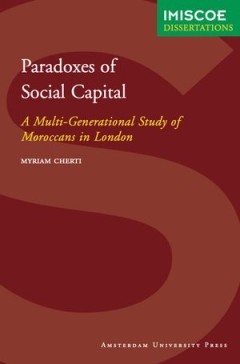
Paradoxes of Social Capital: A Multi-Generational Study of Moroccans in London
Paradoxes of Social Capital critically examines the robustness of social capital theory as an analytical tool in explaining the various 'integration' patterns amongst Moroccans in London. The book also considers how structural factors impact on the ways in which Moroccans - across generations - sustain, access and use social capital at the levels of family, ethnic community, migrant association…
- Edition
- -
- ISBN/ISSN
- 9789053560327
- Collation
- -
- Series Title
- -
- Call Number
- 301 CHE p
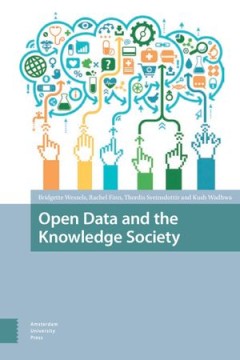
Open Data and the Knowledge Society
While there is a lot of talk about how we now live in a knowledge society, the reality has been less impressive: we have yet to truly transition to a knowledge society—in part, this book argues, because discussion mostly focuses on a knowledge economy and information society rather than on ways to mobilize to create an actual knowledge society. That all may change, however, with the rise of o…
- Edition
- -
- ISBN/ISSN
- 9789048529360
- Collation
- -
- Series Title
- -
- Call Number
- 300 OPE o

Odd Couples: A History of Gay Marriage in Scandinavia
The concept of marriage as a union of a man and a woman was fundamentally challenged by the introduction of registered partnership in Denmark in 1989. "http://www.aup.nl/do.php?a=show_visitor_book&isbn=9789052603810">Odd Couples. A History of Gay Marriage in Scandinavia is the first comprehensive history of registered partnership and gay marriage in Scandinavia. It presents an outstanding study…
- Edition
- -
- ISBN/ISSN
- 9789052603810
- Collation
- -
- Series Title
- -
- Call Number
- 300 RYD o
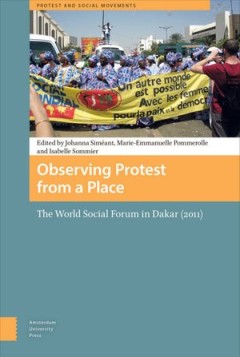
Observing Protest from a Place: The World Social Forum in Dakar (2011)
Social movements throughout the world have been central to history, politics, society, and culture. Observing Protest from a Place examines the impact of one such campaign, the global justice movement, as seen from the southern hemisphere. Drawing upon a collective survey from the 2011 World Social Forum in Dakar, the contributions explore a number of vital issues, including the methodological …
- Edition
- -
- ISBN/ISSN
- 9789048525805
- Collation
- -
- Series Title
- -
- Call Number
- 300
 Computer Science, Information & General Works
Computer Science, Information & General Works  Philosophy & Psychology
Philosophy & Psychology  Religion
Religion  Social Sciences
Social Sciences  Language
Language  Pure Science
Pure Science  Applied Sciences
Applied Sciences  Art & Recreation
Art & Recreation  Literature
Literature  History & Geography
History & Geography